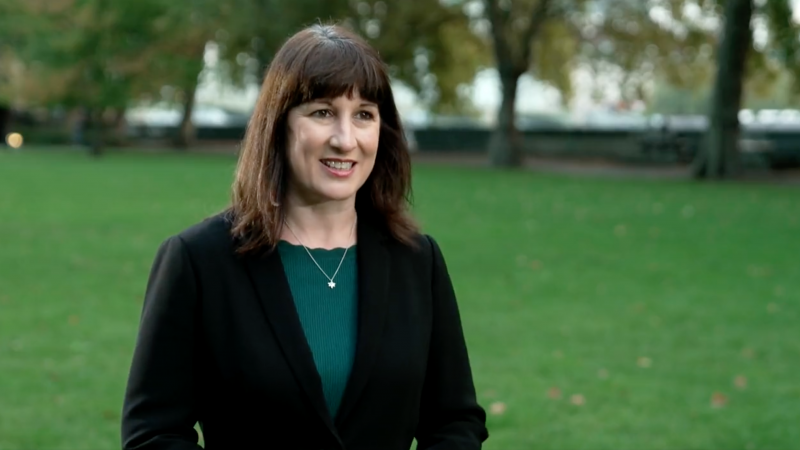
Rachel Reeves is expected to say that the UK has been “far too timid about economic devolution”, promising that a future Labour government would give communities “more control over their future”, in a speech on Wednesday.
Addressing the Great Northern Conference, the Shadow Chancellor will tell attendees that the devolution of economic powers is a “critical ingredient” in developing industry across the north.
Reeves is expected to say: “We have been far too timid about economic devolution. So, in the next Labour government, Lisa Nandy and I will ensure that economic devolution is both deeper and broader.
“This will give communities more control over their future and enable them to contribute more to our country’s economic growth. And broader so our cities, towns and rural areas don’t only have the means to go it alone but to work together to tackle the challenges they face.”
Reeves’ speech will be informed by the work of the Shadow Levelling Up Secretary and by former Labour Prime Minister Gordon Brown’s commission on the UK’s future, which was launched by Keir Starmer in 2020 with the aim of spreading “power, wealth and opportunity” outside Westminster.
“Informed by Gordon’s work and by the contribution of regional and local leaders all around the country the next Labour government will offer a prospectus for real ‘levelling up’ – an agenda for a greener, fairer Britain in which towns and cities across the north of England play their part,” Reeves is expected to say.
The Shadow Chancellor will argue that “none of this can be done with the pull of a lever from Whitehall”, declaring that, for towns and cities to “lead in the growth industries”, communities “will need the tools to do so”.
“We have one of the most centralised states in Europe. And we have one of the most centralised economies too with too much economic growth, wealth and opportunity concentrated in too few parts of the country. That’s not a coincidence,” she will say.
Reeves is also expected to outline how Labour’s green prosperity plan – set out at party conference in September – will boost growth and create good jobs in the North of England, telling attendees: “Many of the most deprived communities and regions in the UK are also those most exposed to the effects of climate change.
“But many of these same regions are ideally placed to lead in renewable energies and the new industries that will power our climate transition. The communities which powered Britain’s first industrial revolution can power the next.
“That is why the North of England is so central to Labour’s green prosperity plan. Electric battery factories in the North East and the North West. Clean steel with jobs in Rotherham, Sheffield and Scunthorpe.
“And carbon capture and storage in Humberside, in Teesside and in Merseyside. Good, secure work. Opportunity shared widely. And industries in which communities can take pride.”
Starmer unveiled Labour’s plan to transform the UK into a “clean energy superpower” ahead of this year’s party conference, announcing that Labour would end the use of fossil fuels in the country’s power system by 2030.
During conference, the Labour leader revealed that his party would create Great British Energy, a publicly-owned clean energy generation company, “within the first year of a Labour government”.
Addressing the Confederation of British Industry on Tuesday, Starmer said: “I don’t see climate change as a risk, I see it as an opportunity. The biggest chance we’ve had in a generation to make our economy work for working people. That’s what our green prosperity plan is all about.
“A plan to make Britain a green growth superpower – to invest in wind, solar, nuclear, hydrogen, green steel and carbon capture. New opportunities for plumbers, electricians, engineers, software designers, technicians, builders. Insulation for 19 million homes
“And Great British Energy – a new national champion that will take advantage of the opportunities in clean British power and turn them into good, secure, well-paid British jobs.”




More from LabourList
‘The hope that kills you’: Reflections from the final day in Gorton and Denton
MPs, union leaders and organisations react to ‘bruising’ Gorton and Denton result
A gory night for Labour